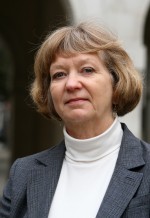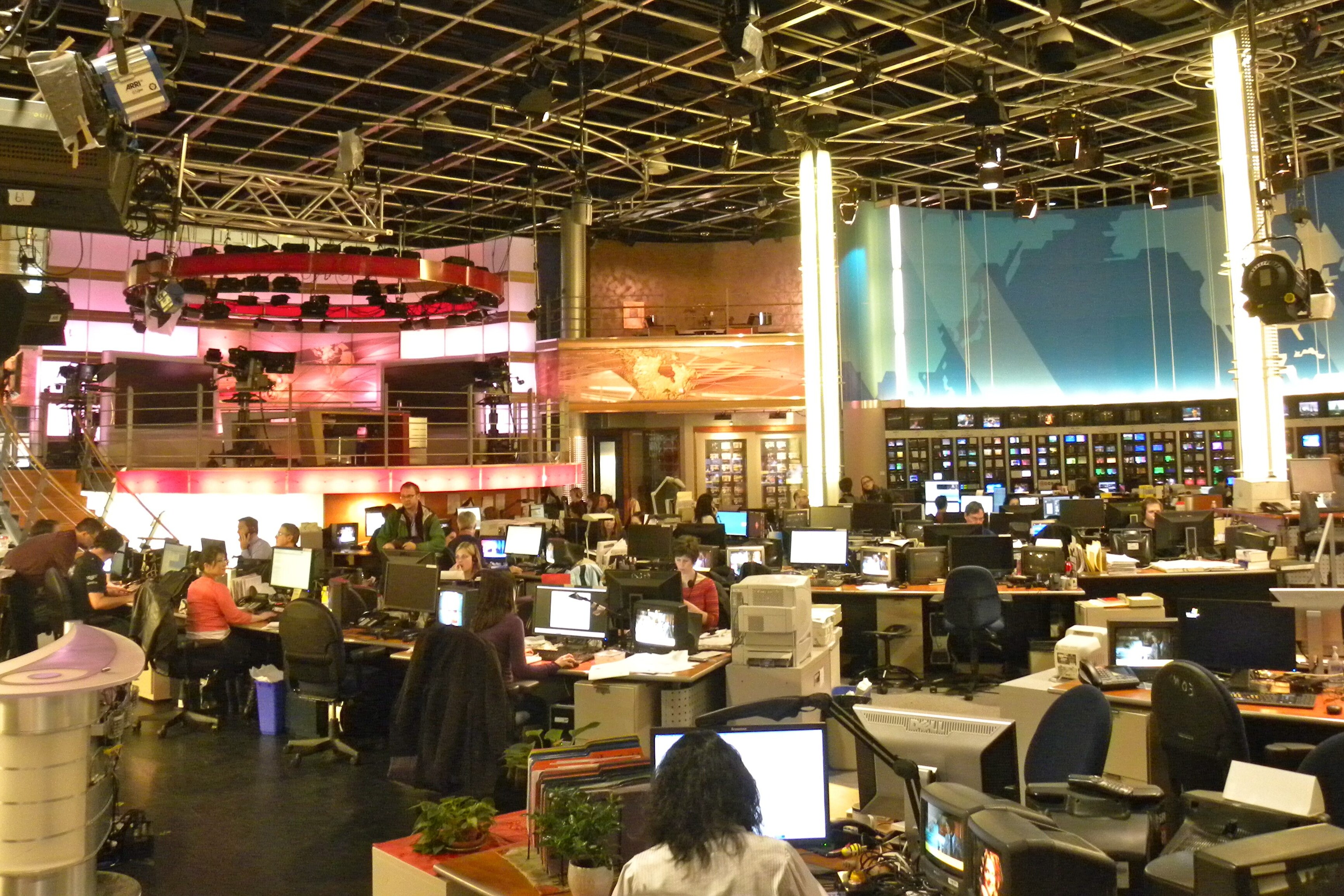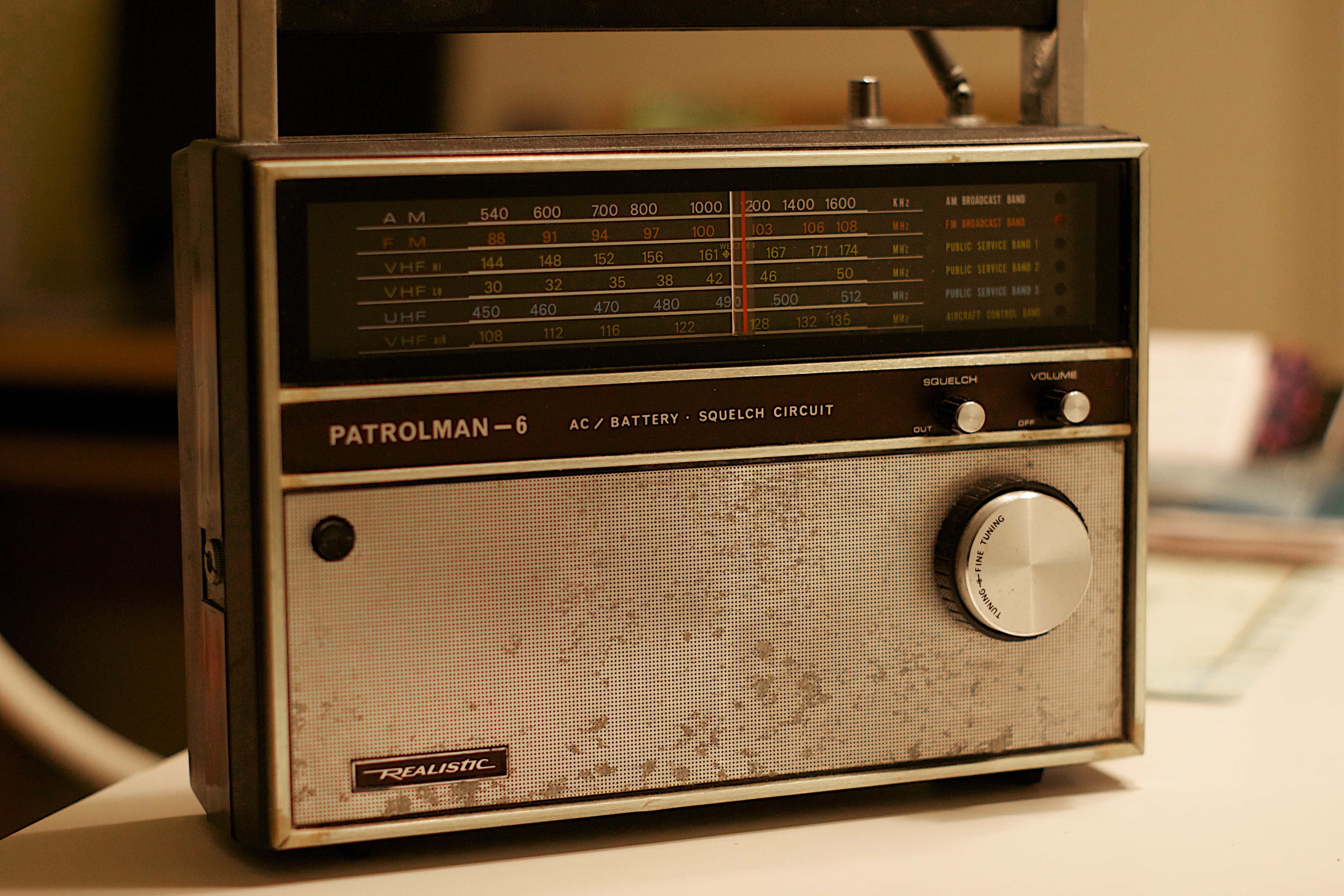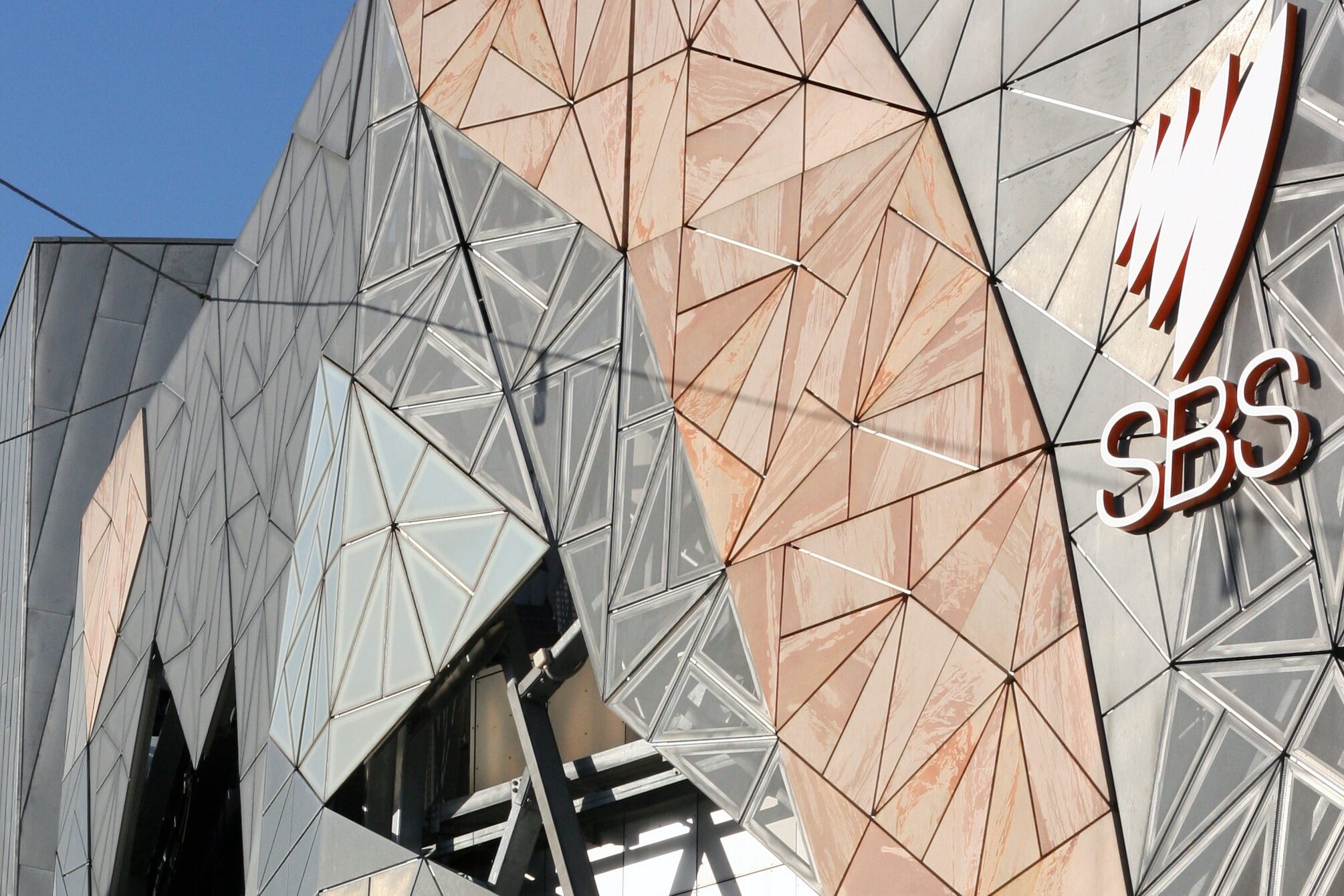This week’s roundup of public media relevant headlines places particular focus on global press freedom, with an introduction from PMA CEO Sally-Ann Wilson.
As the world prepares to mark Press Freedom Day (3 May) it is very sobering indeed to reflect on the changes to the global media landscape since I wrote on the same day just one year ago.

PMA advocates globally for the role that public media plays in building trust and citizen engagement, both are central pillars of democracy. World-wide, north and south, east and west, there is a steady but undeniable growth in authoritarian media systems with an accompanying erosion of press freedom. The irony is that developments in digital media technology could, indeed should, be creating the opportunities for increasing media freedoms. Such freedoms were, until recently, taken as a given in the Western World but let’s not be naïve – that is changing. Each week our stories cover the growing lack of political as well as public understanding regarding the role of public media in calling power to account.
Last year I wrote about Tonga, a relatively new democracy with a strong and committed public broadcaster, the Tonga Broadcasting Commission. This morning I woke to the news that TBC’s experienced and much respected General Manager, Nanise Fifita, had been sacked. This follows a recent claim from the Prime Minister [‘Akilisi Pohiva, formerly known as an activist for democracy], that he was disappointed that her contract had been renewed, labelling TBC as “an enemy of the Government”. Surely whether it is Tonga, the US or Finland, the role of public broadcasters in enabling journalists and increasingly the public to question those in power should never lead them to be framed as enemies of the state.
Strong and accurate journalism are central to public media and to building public trust. Depressing though the changes to media freedom have been in the last year, it would seem to me that there couldn’t be a better time to advocate for public media.
Sally-Ann Wilson, CEO PMA.
PSM Weekly | 26 April – 2 May
Click on the drop-down menus below to reveal the latest regional stories.
BURUNDI: No Media Freedom in Burundi, Reporters Without Borders Says
Iwacu
EGYPT: Egypt arrests journalist for taking pictures
MEMO: Egyptian video journalist Mahmoud Nasr has been arrested in Egypt after taking photographs of someone spraying graffiti.
NAMIBIA: Govt blamed for press freedom drop
The Namibian: The Namibia chapter of the Media Institute of Southern Africa yesterday placed the blame for the country’s decline on Reporters Without Borders’ latest World Press Freedom Index squarely at the feet of government.
SOUTH AFRICA: ‘No Financial Bailout’ for SABC, Yet – Communications Minister
Via All Africa: There are no plans yet for Treasury to give the ailing SABC a bailout, Communications Minister Ayanda Dlodlo said on Friday.
SOUTH AFRICA: SABC Looking To Fill Posts For Group CEO, Group COO, Other Positions Urgently
Broadcast Media Africa: The South African Broadcasting Corporation (SABC) is now actively in a search-for-executives mode, with key positions needing to be filled urgently “to stabilise the organisation”.
SOUTH AFRICA: SA, China ink deal to ‘better’ news coverage
ItWeb: SA has signed a communications agreement with China to improve collaboration between radio and television broadcasters from both countries in terms of news coverage.
SOUTH SUDAN: NPR reporter freed in South Sudan after 3 nights in jail
The Washington Post: South Sudan detained an NPR journalist for nearly four days before releasing him Monday, a spokeswoman for the organization said.
SOUTH SUDAN: Online fake news and hate speech are fueling tribal ‘genocide’ in South Sudan
PRI: Online hate speech and fake news posts seem to be inciting some of the real world violence, according to researchers and activists.
TANZANIA: Journalists’ Houses Urged to Practice Professionalism
Via All Africa: Journalists and media houses have been urged to exercise professionalism with clear scope of their mandate so as to avoid being used by politicians.
TANZANIA: Tanzania: Media Advised On Covering Climate Change Stories
Via All Africa
TUNISIA: Tunisian journalists blame government for drop in free speech index
MEMO: After the release of Reporters Without Borders’ free speech index for 2017, the Tunisian Journalists’ Syndicate blamed the government for the retreat of free speech in the country, Al-Araby Al-Jadeed reported yesterday.
ZAMBIA: ZNBC,Top Star roll out decoders
ZNBC: The Zambia National Broadcasting Corporation-ZNBC and Top Star Communications limited have signed an MoU signaling the official sale of set top boxes at Mass Media Complex.
AZERBAIJAN: Azerbaijan government seeks order to permanently block news websites
CPJ: The Azerbaijani government should immediately stop trying to permanently block access to five independent media outlets’ websites and should instead lift a decree that has rendered them currently inaccessible, the Committee to Protect Journalists said today.
CENTRAL ASIA: A Bleak Outlook: Press Freedom in Central Asia
The Diplomat: Central Asia is but a barometer for the current state of global press freedoms.
CHINA: China’s new generation of war correspondents hit the front line
The Guardian: Beijing’s state-run press expands its global footprint as part of an ambitious media offensive designed to project the country’s voice across the world.
CHINA: For Journalism in China, a Millennial Shift
Medium: The period from the mid-1990s to roughly the mid-2000s was a golden era for Chinese journalists. Now, however, many of the (still young) old guard have deserted, leaving inexperience in their wake.
HONG KONG: Surveillance, privacy and the right to know: A delicate imbalance in Hong Kong
Via IFEX: If there is no freedom of communication, will there still be freedom of expression?
INDIA: India ranks 136 on World Press Freedom Index, slips three places since 2016
Scroll.in: The country, which ranked 136 on the list, was placed in the “difficult situation” slot, as were most nations in its immediate neighbourhood such as Pakistan and Afghanistan.
INDIA: Kashmir crack down: twenty two social media channels blocked
IFJ: The International Federation of Journalists (IFJ) expresses serious concerns over the one-month ban on access to 22 social media websites and messaging apps in Jammu and Kashmir, India declared on April 26, 2017.
INDONESIA: UNESCO Jakarta Declaration
UNESCO: UNESCO are looking for feedback on their draft declaration titled “Critical Minds for Critical Times: Media’s role in advancing peaceful, just and inclusive societies” ahead of its launch on World Press Freedom Day 2017 (3 May).
KYRGYZSTAN: Thin-Skinned President Sets Dogs on Media, Again
Eurasianet: Life in Kyrgyzstan for independent media and critics of President Almazbek Atambayev took a fresh turn for the worse on April 28 as an embattled website revealed it is facing a fifth lawsuit from the government.
MONGOLIA: Mongolian media goes dark to protest press freedom threat
Reuters: Blank screens and red text warning about threats to press freedom interrupted Mongolian television late on Wednesday to protest against legal changes media groups say could harshly punish journalists accused of defamation ahead of elections.
NEPAL: Digitalisation of cable TV underway in Nepal
ABU: The Nepalese Government has taken a firm step toward modernisation by announcing at Kathmandu the decision to switch to a digital system within a year.
PHILIPPINES: NUJP warns Duterte against threatening media orgs
The Inquirer: The National Union of Journalists of the Philippines (NUJP) on Friday warned President Rodrigo Duterte against threatening to close down media networks.
THAILAND: Draft Media Law Threatens News Reporting
Human Rights Watch: 3 Years in Prison for Reporting Without License
GENERAL: Pressed into silence: West Papua, Indonesia & World Press Freedom Day
New Internationalist: As Indonesia prepares to host World Press Freedom Day, accusations of hypocrisy are growing louder. The Indonesian government is notorious for restricting journalism within the occupied territory of West Papua – something that West Papuan journalist Victor Mambor and Cyril Payen of France24 have both experienced.
Climate Tracker: Climate Tracker has developed succinct analyses of media landscapes for reporting climate change in four countries in South Asia. While providing a summary of the media landscape in each country, these Country Media Pamphlets provide an analysis of media reporting on climate change based on in country conversations with journalists in each country.
AUSTRALIA: ABC Central West notches up 80 years of broadcasting as the voice of inland NSW
ABC News: Collapsing bridges, droughts, floods, major prison riots, numerous visits by the Queen and an infamous and hotly-contested guinea pig race — these are just a handful of events that were relayed to listeners since the birth of ABC Central West 80 years ago.
AUSTRALIA: Kim Dalton accuses ABC TV of shifting funds from Australian content
The Guardian: Former ABC TV head says lack of transparency, more than budget cuts, is to blame for neglect of local drama, and Indigenous, documentary and children’s programming.
AUSTRALIA: Sexism in media: Tracey Spicer fights back
ABC: It’s going to take a real rattling of cages to change the sexist culture that can still be seen at the top levels of some media organisations, according to journalist and author Tracey Spicer.
NEW ZEALAND: Academics warn NZME, Fairfax merger would ‘spell disaster’ for NZ media
Asia Pacific Report: Academics have warned a merger of NZME and Fairfax will spell disaster for the media ecosystem at a conference on the future of the New Zealand media.
NEW ZEALAND: Local TV content steady
NZ On Air: New Zealanders enjoyed slightly more new local television content last year but less local content in prime time.
SAMOA: Let media council do its work – PFF to Samoa Police
Pacific Freedom Forum: Samoa police must stop abusing their powers and let the national media council address free speech concerns, says regional media watchdog the Pacific Freedom Forum, PFF.
TONGA: PIMA wants to discuss media freedom with Tongan PM
Radio New Zealand: The Pacific Islands Media Association has offered to initiate mediation discussions with Tonga’s Prime Minister ‘Akilisi Pohiva, who recently threatened the state owned broadcaster with closure.
TONGA: Tonga PM forces changes to broadcaster’s leadership
Radio New Zealand: The chair of the Tonga Broadcasting Commission has effectively been sacked by the Prime Minister ‘Akilisi Pohiva after saying the TBC didn’t support his government.
TONGA: TBC boss’s contract termination big mistakes, lawyer says as legal action launched
Kaniva Tonga News: The lawyer for Tonga Broadcasting Commission general manager Nanisē Fifita told Nepituno webpage the termination of his client’s contract was a big mistake and should be corrected.
GENERAL: Asia-Pacific holds many ‘worst records’ in media freedom report, says RSF
Asia Pacific Report: Media freedom is under threat now more than ever – and many of the worst violators are in the Asia-Pacific region, says the Paris-based global watchdog Reporters Without Borders/Reporters Sans Frontières (RSF).
BALKANS: Journalists in the Western Balkans faced with political pressure
European Western Balkans: Although four out of six countries of the Western Balkans are EU candidate countries, media freedoms are far away from the European standards. With the recent trend of erosion of the rule of law in the region, media freedoms might take a significant setback.
BOSNIA: Plight of Bosnia’s Public Broadcaster Causes Alarm
Balkan Insight: As Bosnia’s state level broadcaster, BHRT, struggles to pay its bills, there are warnings that its disappearance would be a disaster for the country’s divided media scene.
CZECH REPUBLIC: Petr Dvořák re-elected as Director General of Czech Television
EBU
GERMANY: Germany: A draft law to counter hate speech would threaten freedom of expression
EFJ: The German affiliate of the European Federation of Journalists, the Deutscher Journalisten-verband (DJV) co-signed a “Declaration on Freedom of Expression” in response to the adoption of the Network Enforcement Law („Netzwerkdurchsetzungsgesetz”) by the German Federal Cabinet on April 5, 2017, supposed to be adopted by the German Bundestag in the summer.
GERMANY: Here’s why Germany still lags behind Scandinavia on press freedom
The Local: Germany stagnated in rankings of the world’s media released by Reporters Without Borders (RWB) on Wednesday, while the report claimed global media freedom in the ‘post-truth’ era is more threatened than ever.
FRANCE: France’s deceptive rise in the Press Freedom Index
RSF: France is ranked 39th in the 2017 World Press Freedom Index, six places higher than a year ago, although the situation of its journalists is far from being any better.
FRANCE: The French fake news fightback
Radio New Zealand: Falsehoods and misinformation gained traction during the Brexit vote in the UK and the election in the US last year. In France, the media are collaborating to fight fake news with facts during a turbulent election.
LUXEMBOURG: Strengthening Public Service Media (Interview – French)
Paperjam: Public service media guarantees credibility and independence in a small market dominated by actors guided by commercial imperatives, argues Jean-Paul Hoffmann, director of Radio 100,7.
MONTENEGRO: Montenegro: double standards in regulating media concentration
Osservatorio Balcani e Caucaso: Although, officially, Montenegro doesn’t have any problem with media concentration, two or three owners control most of the media. For some, this is not a major commitment, as they are primarily engaged in other businesses.
ROMANIA: Romanian Parliament’s special committees reject national radio’s report
Romania-Insider: The culture committees of the Senate and Chamber of Deputies yesterday rejected the 2016 activity report of the Romanian Radio Broadcasting Company (SRR), which runs the public radio – Radio Romania.
ROMANIA: The protests continue at the National Radio
FairPress: The protests seem to never end at the public radio. Recently, the High Court attested that the elections in 2014 for the Administration Council weren’t organized in a legal manner and the procedures permitted a nepotistic result. At the same time, a group named Kompatibil, formed from employees of the Romanian radio, protested against the abuses of management.
RUSSIA: Confessions of a (Former) State TV Reporter
Coda: After working for Kremlin TV, a Russian reporter explains how the state turns journalists into propagandists.
SCANDINAVIA: Nordic voices on freedom of expression
Nordicom: A new booklet highlights the challenges to freedom of expression, from a Nordic perspective.
UK: ‘Downward spiral’: UK slips to 40th place in press freedom rankings
The Guardian: Reporters Without Borders says Britain is approaching tipping point in wake of passage of Investigatory Powers Act.
UK: The future of media in Wales: policy challenges
LSE Media Policy Project: The discussions about Channel 4 being pushed to move out of London, and about the BBC being forced to spend more of its programming budget outside the capital show that there is a shift towards better regional representation in UK programming.
UK: News just in: in a digital world where entertainment is everywhere people want TV news (Opinion)
ProfPurvis: For years we TV news hacks have been told by ‘proper’ TV people that in a digital world where people can get news everywhere what viewers really want from television is entertainment.
GENERAL: Amendments proposed to Audiovisual Media Services Directive
Broadband TV News: Online streaming services including Netflix and Amazon could be required to contribute financially towards the development of European content.
ARGENTINA: Lombardi oversees reform of public media (Interview)
The Worldfolio: As Argentina establishes its relationship with the world, it will re-emphasize its relationship binding its own society through its media content.
BRAZIL: Temer ordered, the press obeyed: coverage does not speak or focuses on the strike (Portuguese)
Carta Capital: On the day that millions of workers stopped the country against pension and labor reforms, Brazilian journalism did not talk about the general strike.
CUBA: Innovative State TV channel lands in Cuba
PMA: Cuba’s latest television channel breaks away from tradition with different formats, young staff and a ‘revolutionary’ agenda.
VENEZUELA: Venezuela regulator takes two international news stations off air
CPJ: Venezuela’s state telecommunications regulator Conatel ordered two international news broadcasters– El Tiempo from Colombia, and Todo Noticias from Argentina– off the air on April 19, 2017, the broadcasters reported.
GENERAL: BBC, Discovery LatAm content deal
Advanced Television: Discovery Networks Latin America/US Hispanic and BBC Worldwide have announced a first look deal for the factual, lifestyle, natural history and motor programming categories, through which Discovery’s networks will become the home to many of the BBC’s most popular titles.
GENERAL: Latin American and Spanish news sites experiment to reach audience and finance quality journalism
Knight Center for Journalism in the Americas: In a global context in which the demand for traditional newspapers decreases and in which the use of information and communication technologies grows, journalists are forced to develop ingenious ways in which to deliver their products.
GENERAL: Google News Lab launches operations in Latin America to help journalists with tools and training
Knight Center for Journalism in the Americas: Google News Lab, the team at Google that collaborates with journalists and media in the creation of information, is expanding its activity in the Latin American market.
BAHRAIN: Bahraini journalists harassed, banned from travel
CPJ: Bahraini prosecutors and security officials should cease harassing journalists and should lift travel bans imposed on two reporters in the past week, the Committee to Protect Journalists said today.
ISRAEL: Has Israel finally reached a deal over public broadcaster?
PMA: After a series of debates and amidst threats to call a national election and a general strike, the Israeli government have reached a deal for the nation’s broadcaster.
TURKEY: 151 Journalists Imprisoned in Turkey
Free Turkey Journalists: See the people behind the numbers.
CANADA: CBC London, Ont. station set to launch in June
CBC News: CBC London will be heavily involved in the community with town-hall discussions and remote broadcasts.
CANADA: Press freedom in Canada…not as good as you think
RCI: Canada has slipped down to 22 on the list of 180 countries, dropping four spots from the previous year, and a 10 place drop in the year before that.
America’s Public Television Stations: Findings Will Be Discussed at National Association of Broadcasters Panel on Leveraging the Public Media Broadcast System for Public Safety.
US: A new game puts the public into public radio archives
Poynter: The Public Broadcasting Act of 1967, which created the Corporation for Public Broadcasting (CPB) and later led to the creation of both PBS and NPR, also recognized the importance of archiving public broadcasting material in the United States.
US: It’s not just Trump: US media freedom fraying at the edges (Report)
Index on Censorship: A review of threats to press freedom.
US: NPR, the AP and local newspapers are beginning to experiment with Amazon Echo
Poynter
US: PBS CEO: Federal funding for public broadcasting is critical
Atlanta Business Chronicle: The continuation of federal funding for public broadcasting is a matter of survival for several stations across the nation, Public Broadcasting Service President and CEO Paula Kerger said Monday in Atlanta.
2017 World Press Freedom Index – tipping point
RSF: The 2017 World Press Freedom Index compiled by Reporters Without Borders (RSF) reflects a world in which attacks on the media have become commonplace and strongmen are on the rise.
Advice for Journalists Working With Traumatic Imagery
MediaShift: Traumatic imagery has always been a part of journalism, but in today’s 24-hour news cycle, those who work in media are exposed to negative news like never before.
Can charity save journalism from market failure?
The Conversation: A foundation created by eBay founder Pierre Omidyar and his wife Pam recently announced it’s giving US$100 million to investigative news outlets and other initiatives, a rare boon for media institutions under duress. Even a fraction of this gift could help bolster impoverished U.S.-based journalism.
Climate Change Is Getting Worse And So Is Media’s Coverage Of It
Media Matters for America: Broadcast networks are decreasing their climate coverage at a time when the case for reporting on the issue has become more and more compelling. By ignoring this serious matter, media are failing to inform audiences about pressing impacts on human migration patterns, women, and the economy.
Does Virtual Reality Have A Future In The Newsroom?
EJO: Virtual Reality (VR) has evolved from its early experimental phase to become a strategically key, more integrated part of many newsrooms globally. But how are news organisations addressing the challenges of content and user experience? And will VR ever become mainstream?
In Global Press Freedom Slump, Some Countries Stand Out
Freedom House: Poland, Turkey, Ethiopia, and Serbia were among the countries with the largest and most significant declines in the past year.
Journalism weakened by democracy’s erosion
RSF: The 2017 World Press Freedom Index, published today by Reporters Without Borders (RSF), shows that violations of the freedom to inform are less and less the prerogative of authoritarian regimes and dictatorships.
Facebook will start training local journalists and newsrooms
Poynter: Facebook started 2017 with a road trip down South to meet with local journalists. As those trips continue, the social media giant announced another level of in-real-life engagement on Thursday — a training and support pilot program for local legacy and online newsrooms.
ISOJ 2017: Podcasts can positively transform the way the audience interacts with media
Knight Journalism for Journalism in the Americas: Although podcasts have been used for a little more than ten years, both by various digital platforms and by the news media, but mainly by the radio – its narrative prestige in journalism is fairly recent.
Public service news are more diverse than commercial
Journalism Research News: News published online by public service broadcasters provide more diversity than news published by other types of news organisations, Edda Humprecht and Frank Esser, both of University of Zurich, write.
The creator of Google News has an idea for how platforms can help stop fake news
NiemanLab: In the months since the U.S. presidential election, there have been many proposed solutions for how platforms such as Facebook and Google can deal with misinformation and fake news. This week another possible solution emerged — this time from someone with significant experience with how platforms deal with news.
PSM Weekly is available via email. You can subscribe by signing up to our mailing list at the bottom of the page or email editor@publicmediaalliance.org.
All PSM Weekly stories are provided for interest and their relevance to public service media issues, they do not necessarily reflect the views of the Public Media Alliance.
All headlines are sourced from their original story.
If you have any suggestions for our weekly round-ups, please email PMA at editor@publicmediaalliance.org.
Header image: World Press Freedom Day, 3 May 2017. #WPFD2017 #PressFreedom. Credits: UNESCO


